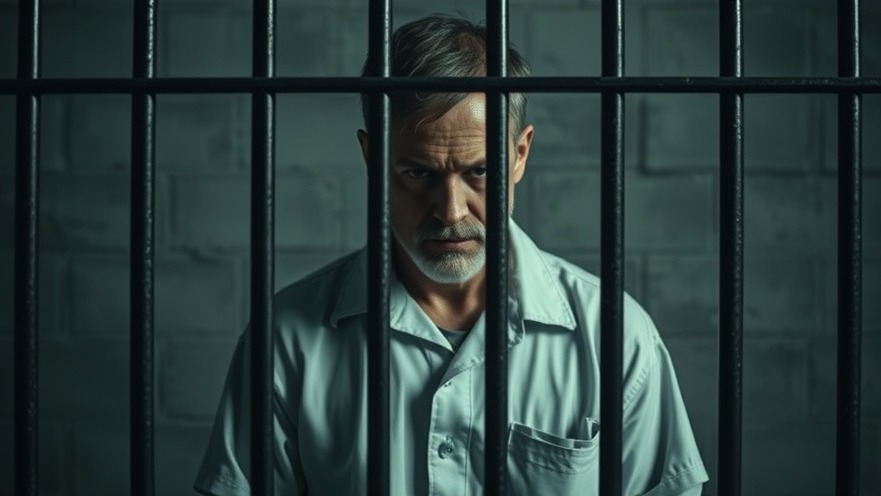
Supreme Court Decision Marks a Turning Point for Death Row Inmates
The U.S. Supreme Court has taken a significant step in supporting justice for death row inmates. In a landmark ruling, the Court has decided that Ruben Gutierrez, a Texas inmate, can contest the constitutionality of a state law hindering his access to critical DNA evidence that he believes could prove his innocence. This ruling, issued with a commanding 6-3 majority, emphasizes the necessity of ensuring that wrongful convictions can be addressed and rectified. The decision comes in the wake of concerns about the integrity of the criminal justice system and its implications for future cases.
Exploring the Case: What Led to This Moment?
Ruben Gutierrez was convicted for the 1998 murder of Escolastica Harrison, an elderly woman whom he allegedly robbed and attacked alongside two accomplices. Despite these serious charges, Gutierrez has consistently claimed his innocence and argued that modern DNA testing could provide exculpatory evidence. His legal battle began after the Texas Court of Criminal Appeals denied his request for DNA testing back in 2011, a denial that would set off a series of legal maneuvers culminating in the recent Supreme Court ruling. This case highlights the complex intersection between law, technology, and human rights within the Texas justice system.
The Implications of DNA Testing on Justice
DNA testing has revolutionized the legal landscape, offering a powerful tool to both prosecute and exonerate individuals accused of crimes. In many cases, such testing has led to wrongful convictions being overturned, shining a light on the flaws within the system. The Supreme Court’s decision invites further discussions on how outdated laws can impede the pursuit of justice and begs the question: How many more innocent individuals might be exonerated if they were granted access to this technology?
Diverse Perspectives: Supporters and Detractors Weigh In
The ruling, while celebrated by advocates for criminal justice reform, also faced opposition. Dissenting opinions from Justices Alito, Thomas, and Gorsuch expressed concerns about the potential ineffectiveness of the DNA testing in proving Gutierrez's innocence, citing that the law under which he was convicted may not fully allow for reconsideration based on additional evidence. Their apprehension raises important questions about the reliance on forensic evidence and the continuing issue of wrongful convictions.
The Broader Context: Death Penalty Debates in Texas
This case exemplifies the ongoing debates surrounding the death penalty in Texas—traditionally viewed as the state with the most executions in the U.S. Discussions are growing around the ethics of capital punishment, particularly in light of cases like Gutierrez's, where there is significant doubt about the guilt of the accused. As legal battles continue, the landscape of American justice is being reshaped, particularly in states with longstanding death penalty traditions.
A Future Vision: Healing the System Through Reform
As the journey for Gutierrez continues, the Supreme Court’s decision serves as a hopeful marker for those advocating for reform in the criminal justice system. The case not only underscores the importance of allowing access to DNA testing but also signals a collective need to reassess outdated laws that limit the rights of those who have been wrongfully accused. As Texas faces various societal challenges, including discussions about police and judicial reform, the outcomes of such cases will likely influence the state’s trajectory moving forward.
What’s Next for Gutierrez and Others Like Him?
The Supreme Court ruling means that Gutierrez has a chance to obtain the DNA testing he and his attorneys have been fighting for, opening a door that had previously been shut. As he and his legal team prepare to engage further with the Cameron County District Attorney's office, the path ahead will determine not only Gutierrez’s future but also the broader implications for many other inmates who remain in similar predicaments across Texas and the entirety of America.
In the wake of this ruling, the community, the state, and the nation will be watching closely as Gutierrez's case develops. Advocates hope that it may spark a broader reform of the laws governing death row and serve as a model for other jurisdictions grappling with similar issues. One thing is for certain: accountability and justice are vital in any society, and the push for substantive legal reforms must remain a priority.
 Add Element
Add Element  Add Row
Add Row 



Write A Comment